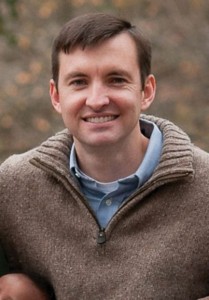My Facebook feed is a-twitter with exclamations about the recent decision at Tufts University to allow an on-campus Christian group (Tufts Christian Fellowship) to “discriminate,” so to speak, in selecting its leaders. Back in October, Tufts’ Community Union Judiciary had implemented an “all comers” policy, which stated that any  university-sponsored campus group could not discriminate, even on the basis of religious belief, in selecting its leaders. This, for obvious reasons, came as troubling news to Christian groups everywhere, for whom the very reasons for meeting together have to do with theological beliefs and distinctive religious commitments. Should not an evangelical group have the right to deny a Mormon a position of leadership, on the basis of an aberrant understanding of Jesus Christ, for example? When it comes to religious fellowship and a spirit of Christian hospitality, “all comers” is a fine mantra–but it doesn’t work as a policy of leadership. Tufts apparently recognized this too, and granted an exception to the “all comers” policy to religious groups, so they can choose leaders that align with their mission and values.
university-sponsored campus group could not discriminate, even on the basis of religious belief, in selecting its leaders. This, for obvious reasons, came as troubling news to Christian groups everywhere, for whom the very reasons for meeting together have to do with theological beliefs and distinctive religious commitments. Should not an evangelical group have the right to deny a Mormon a position of leadership, on the basis of an aberrant understanding of Jesus Christ, for example? When it comes to religious fellowship and a spirit of Christian hospitality, “all comers” is a fine mantra–but it doesn’t work as a policy of leadership. Tufts apparently recognized this too, and granted an exception to the “all comers” policy to religious groups, so they can choose leaders that align with their mission and values.
In related news, last week World magazine reporteda kerfuffle in a Louisville chapter of Cru (formerly Campus Crusade for Christ). Daniel Harman, a committed complementarian, was apparently growing uncomfortable with

Cru’s egalitarian policy which stated that women and men should have equal roles in leadership and in teaching–there should be no discrimination. Harman, however, did not comply with the policy, refusing to allow women to teach to mixed company. A female student questioned him about this, and word traveled up the chain of command. Utlimately this led (as one would expect) to Harman’s demotion (he still remains on staff at Cru).
As an egalitarian, I’m of course biased here, but I encouraged by Cru’s clear stand on their egalitarian policy. I applaud their willingness to hold firm to their commitments and to prioritize the spread of the gospel over the secondary doctrinal disputes. It is interesting, though, that a prioritizing of the spread of the gospel leads naturally to an egalitarian practice–even if it is “just” strategic or pragmatic, in their case. There’s a lot there to consider.
I’m glad that Tufts Christian Fellowship will be able to choose their leaders on the basis of their distinctive theological commitments. I’m also glad that Cru’s University of Lousiville chapter has the freedom to ensure that their leaders align with their strategic mission of advancing the gospel of Jesus Christ.
I am acutely aware, however, that with freedom comes responsibility. “From everyone who has been given much, much will be demanded; and from the one who has been entrusted with much, much more will be asked” (Lk 12:48). With that in mind, I hope that parachurch organizations and those who lead them do not see the reiteration of their freedom so much as an occasion for triumphal celebration, as for somber reflection on their mission and with acute sensitivity to the increasingly pluralistic situation in which we find ourselves. Ours is not a time for retrenchment into archane, sectarian distinctiveness, but for an irenic, open-handed engagement with “the world” in the name of Christ’s ongoing project of reconciliation.
But what thoughts do you have on these developments in the crazy world of the parachurch?












